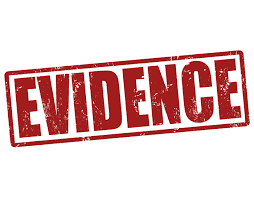It is what it is…or is it?
The internet is a precarious place. We buy, we sell, we talk – and we post. And while that’s all fine and good, it isn’t without consequence. Facebook launched in 2004, and since that time Canadian Courts have addressed and analyzed evidence obtained through Facebook and other social media platforms.
Recently, in a 2-1 decision, in R. v. Martin, 2021 NLCA 1, the Newfoundland and Labrador Court of Appeal overturned a lower court’s decision deeming Facebook screenshots as inadmissible. In a 30 page decision, the Court of Appeal explained how the Provincial Court Judge (“PCJ”) had erred in their analysis of the rules of authentication in relation to the proposed electronic evidence.
The case involves allegations that the Accused, Mr. E. Martin, made threats against the Royal Newfoundland Constabulary (police), via pictures and written communication on Facebook. He was charged with being in possession of a knife for a purpose dangerous to the public peace, being in possession of a rifle for a purpose dangerous to the public peace, and uttering a threat to members of the Royal Newfoundland Constabulary.

The police had attended Mr. Martin’s residence one evening to follow up on a domestic disturbance complaint. The investigation went no further than a brief attendance at the Accused’s residence, which resulted in no further action being taken.
The investigation with respect to the charges in this case began when the police received an anonymous tip that the Accused had posted several pictures on Facebook indicating he planned to harm police.
It was the evening following their first visit to Mr. Martin’s residence that the police received the anonymous tip that indicated he had posted a menacing caption, directed at police, combined with photos that included firearms. The police again attended Mr. Martin’s residence, but were clearly not welcomed. They returned to the detachment and tried to view Mr. Martin’s Facebook page, but were unable to view any content. The police then contacted the anonymous tipster to ask if they would email pictures of the postings, which they did. In total, six screen shots were forwarded. The “screenshots” depicted an individual in various poses, kneeling with and holding various firearms that included a rifle and a long gun. The words “Ed’s Post” and “Ed Martin added 4 new photos” appeared as “banners” over the photos, in the typical Facebook font and symbolism.
These screenshots were at the centre of the Crown’s firearms and threats charges against the Accused. A Voir Dire was held to determine the admissibility of the screen shots. Ultimately, the PCJ declined to admit the photos as evidence, reasoning that these items had failed to be authenticated. The PCJ opined that since the anonymous tipster had not been called to give evidence, no one could testify that the screenshots were not altered or changed in anyway. The Court went further to say that there had been nothing to substantiate that the Accused even had a Facebook account, and even if they did, there was no way to determine conclusively that the Accused had been the one to author the posts depicted in the screenshots.
The Accused was convicted of being in possession of a knife for a dangerous purpose (which was found on him at the time of his arrest) but was acquitted on the charges of being in possession of a rifle for a dangerous purpose to the public peace, and uttering a threat to members of the Royal Newfoundland Constabulary. The Crown appealed the PCJ’s decision to rule the screenshots inadmissible – which brings us to the Court of Appeal’s analysis of the issue.
The Court of Appeal was thorough and careful to reiterate its explanation of a key component in their analysis: the threshold for admissibility of authenticated electronic documents under the Canada Evidence Act is low, and can be established by both direct and secondary evidence. The proposed electronic evidence must be capable of supporting a finding that the evidence sought to be admitted is what it purports to be.
The Crown submitted that the PCJ had been erroneous in ruling that the screenshots were not authenticated by the evidence adduced at Trial. At the Voir Dire, 10 witnesses, all police officers, were called including the officer who began the investigation and obtained the screenshots. This police officer testified that he was very familiar with the layout of Facebook, and the screenshots were consistent with what he knows of Facebook. While not accepted by the PCJ as an acceptable form of authentication, the Court of Appeal disagreed and suggested that the officer’s testimony was evidence that the screenshots were authentic. Further, the police officer testified about identifying striking similarities between what they saw when they were in attendance at the Accused’s home – clothing, personal items, layout of the residence – that mirrored what they had seen in two of the screenshots. The Court of Appeal found that this information aided in the authentication of the screenshots, and determined that it was not necessary to have the anonymous tipster’s testimony verifying their authenticity. No evidence to the contrary was introduced by the Defence.

The Court of Appeal stressed that authenticity does not determine authorship – meaning that although the evidence is admissible, it is not determinative of who actually authored the post. As a result of their analysis, the Crown’s appeal was allowed and the case was returned back to Provincial Court for further proceedings. As is standard practice, the Court of Appeal did not comment on what probative value the evidence may have.
The introduction of digital evidence in criminal proceedings will continue to create a myriad of issues for the courts to determine. The Charter was not written with these intricacies in mind – and the responsibility lays not only with the courts, but in the hands of criminal lawyers across the country. If your case involves digital evidence (social media postings, text messages, etc.) it is imperative that you contact experienced and seasoned counsel without delay. We are licensed to practice in British Columbia, the Yukon Territory and the Northwest Territories.
